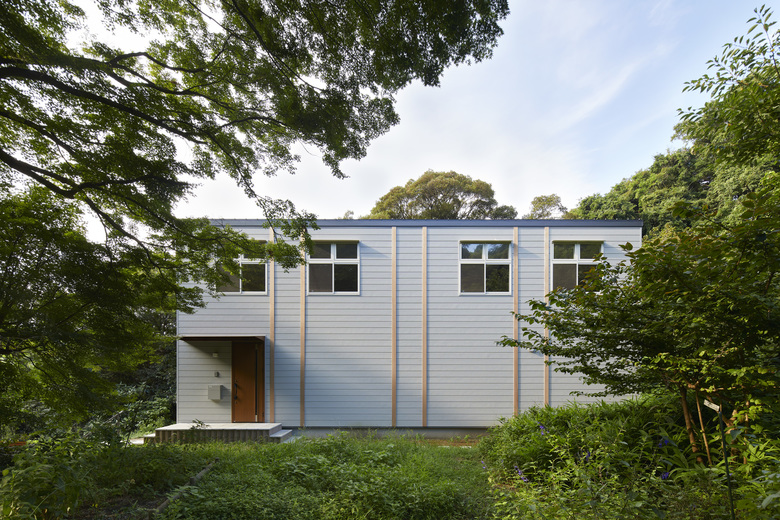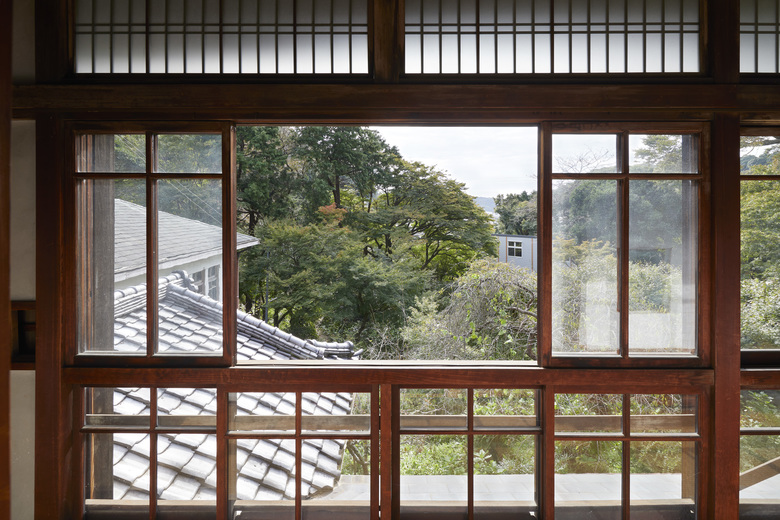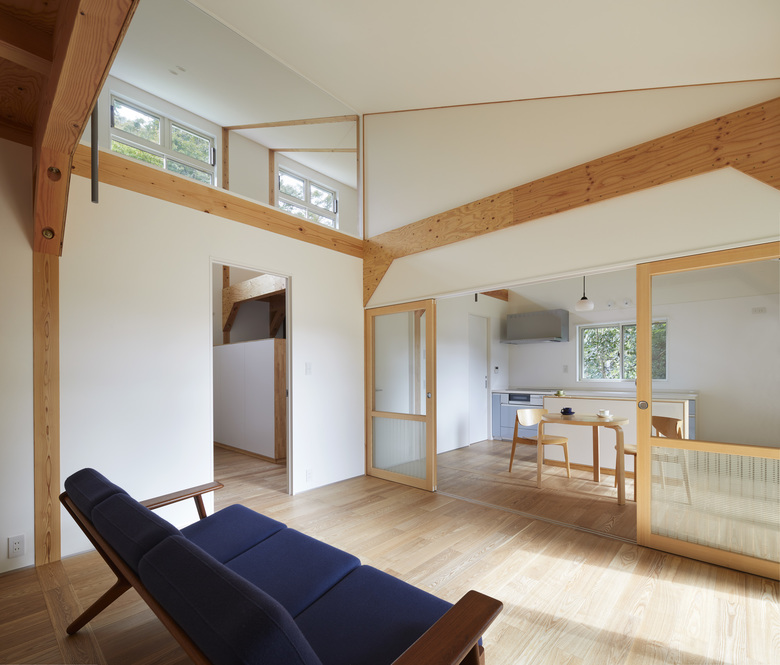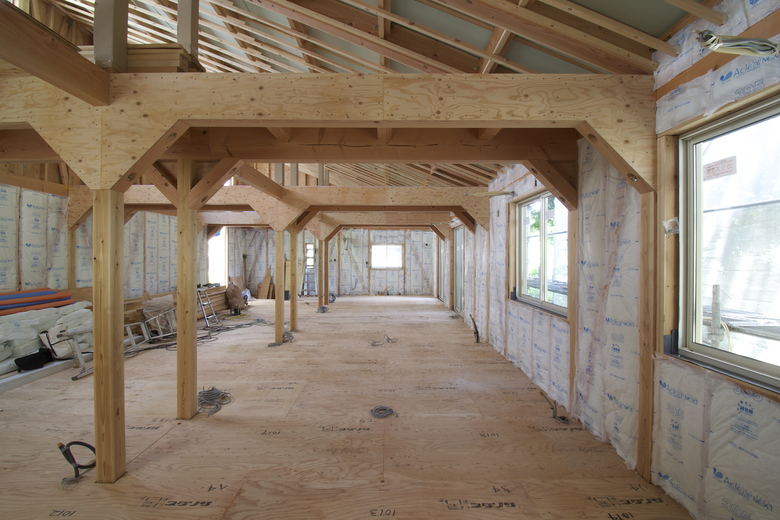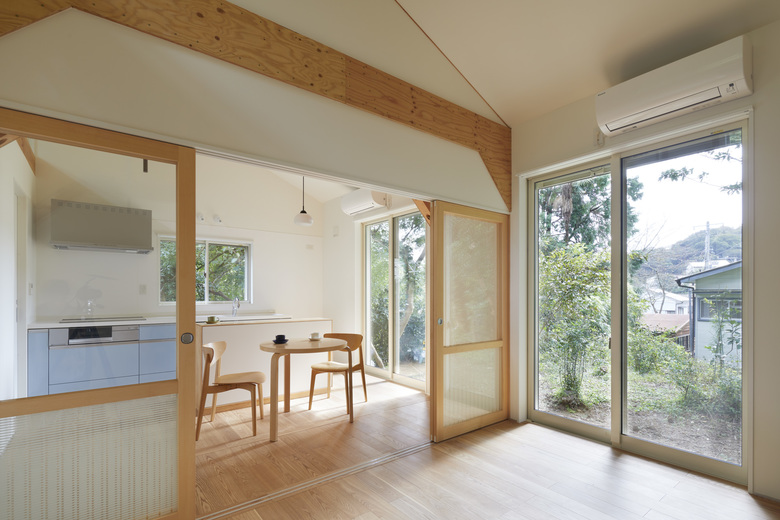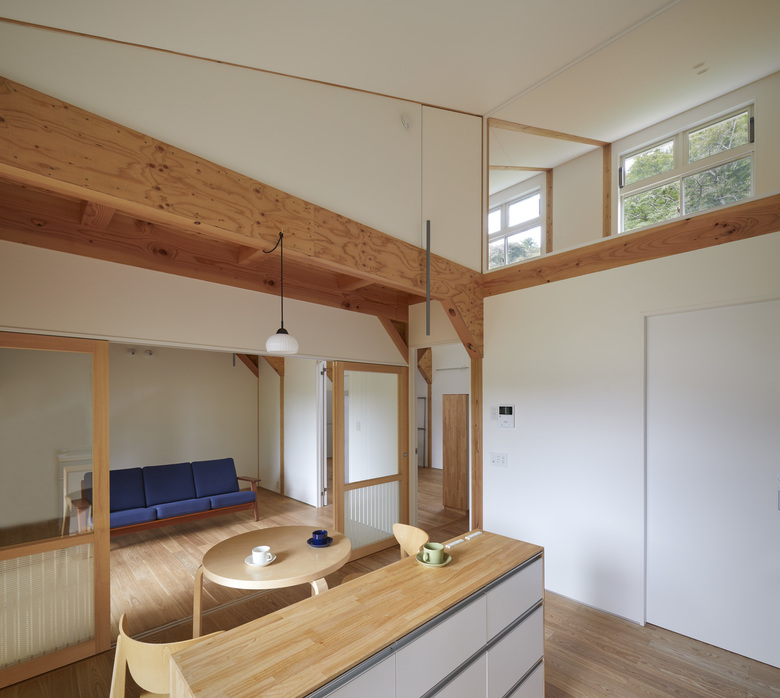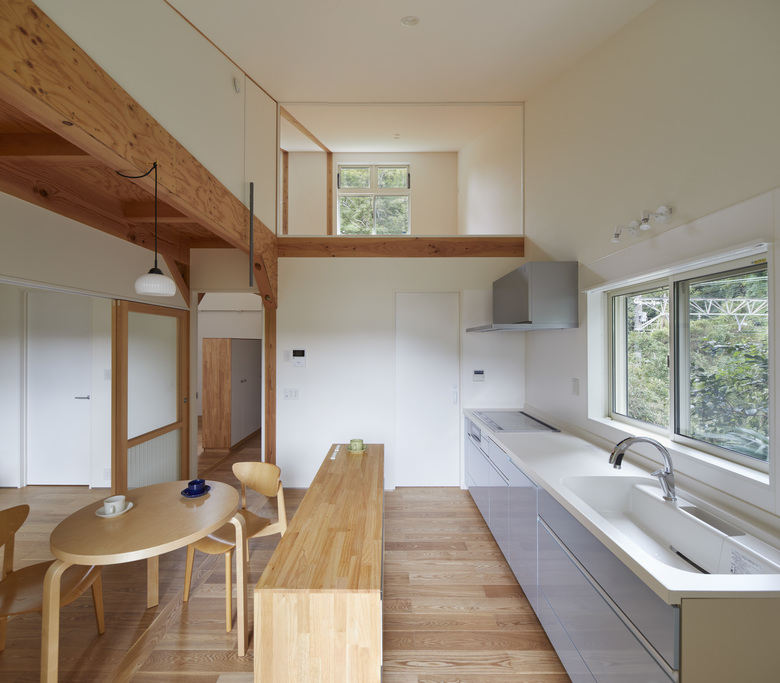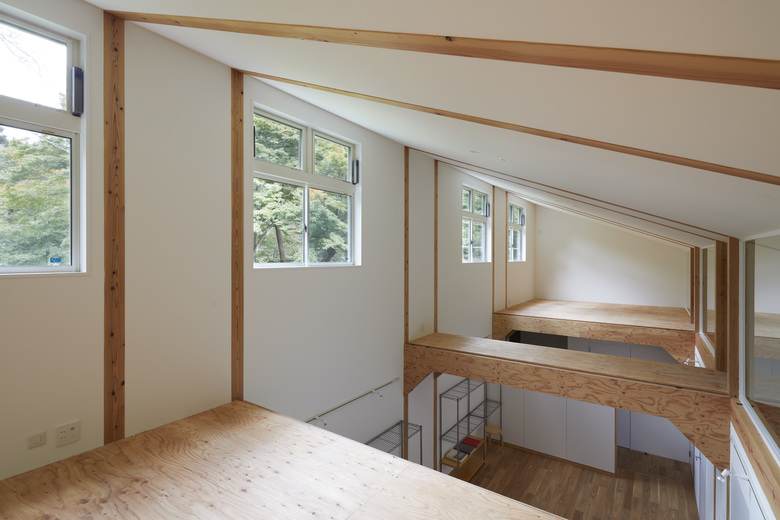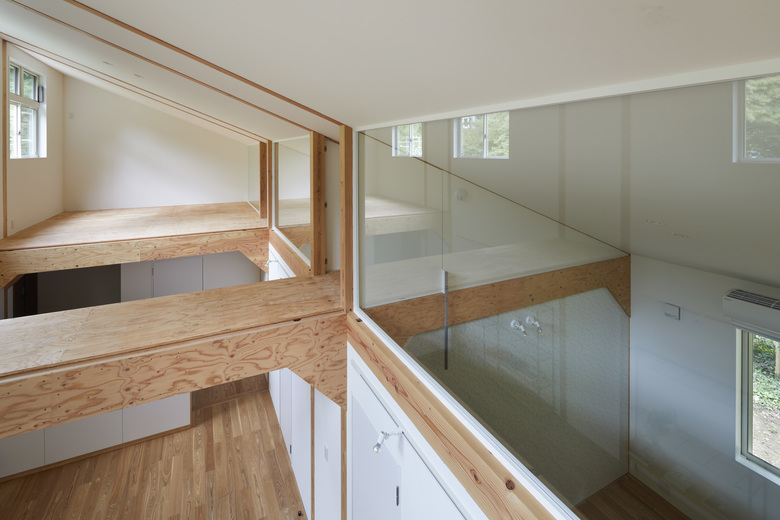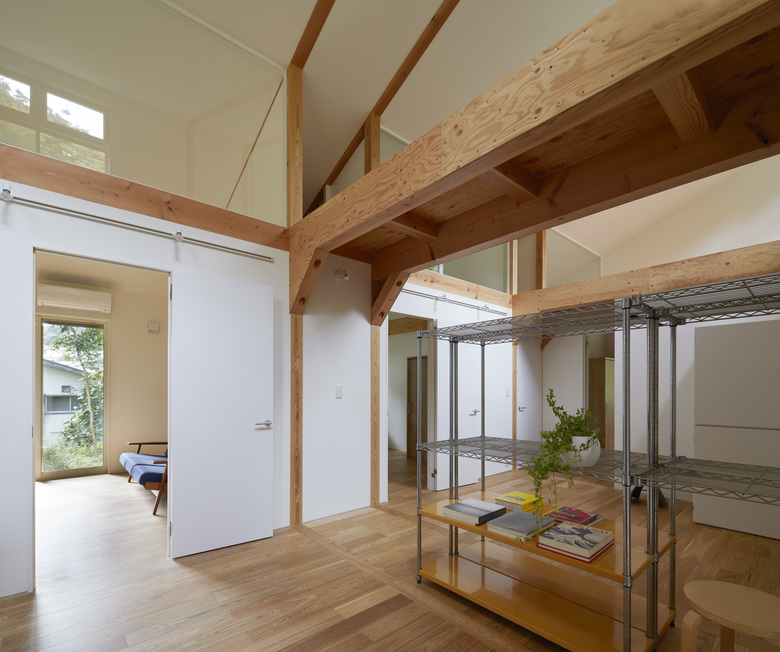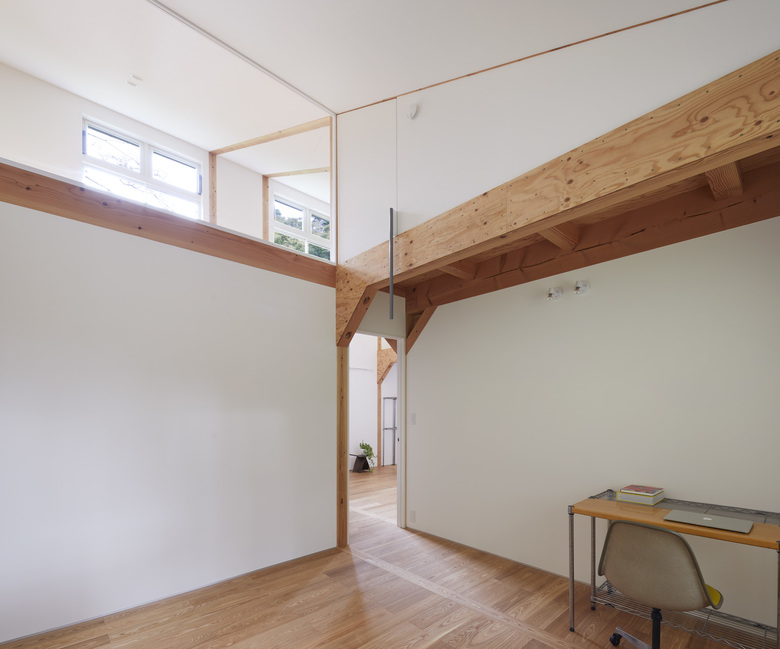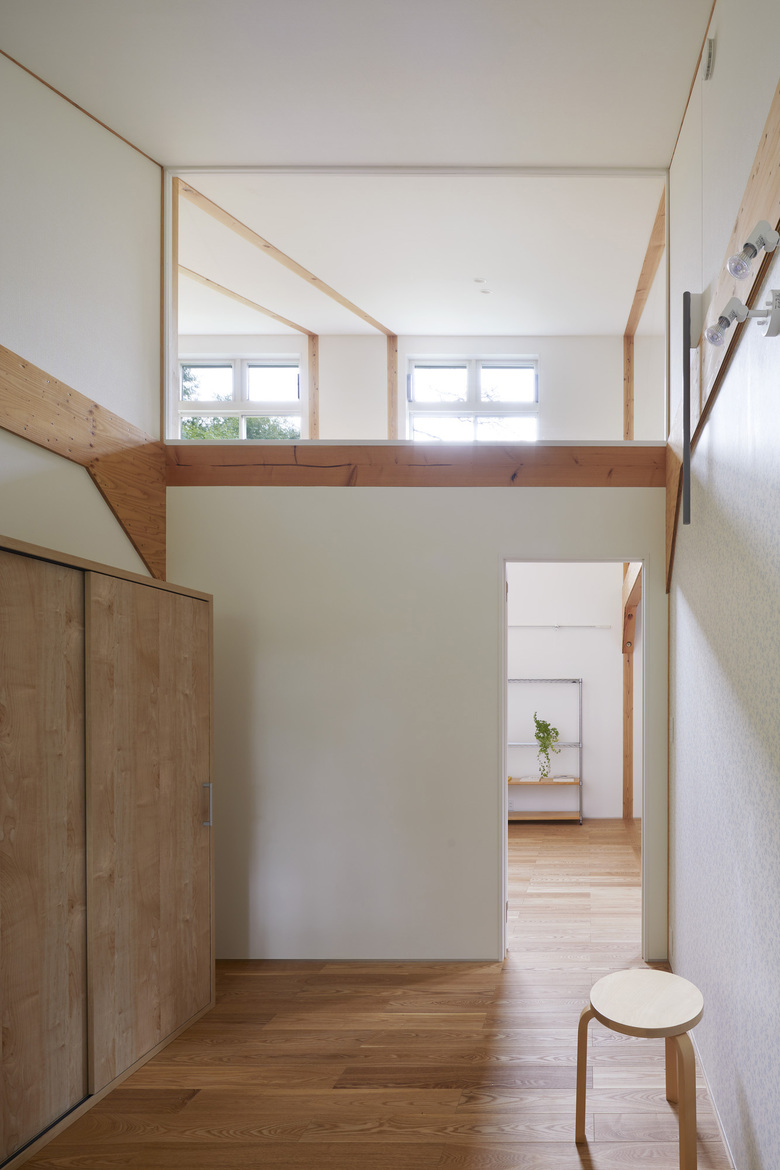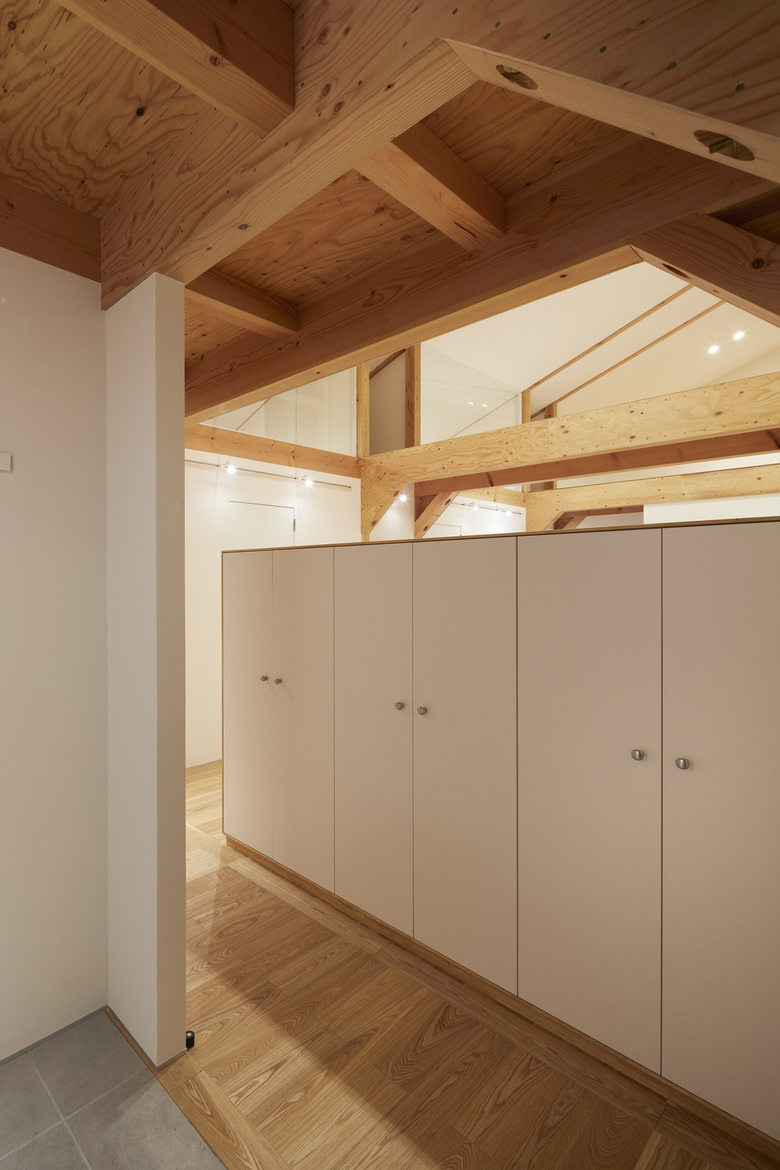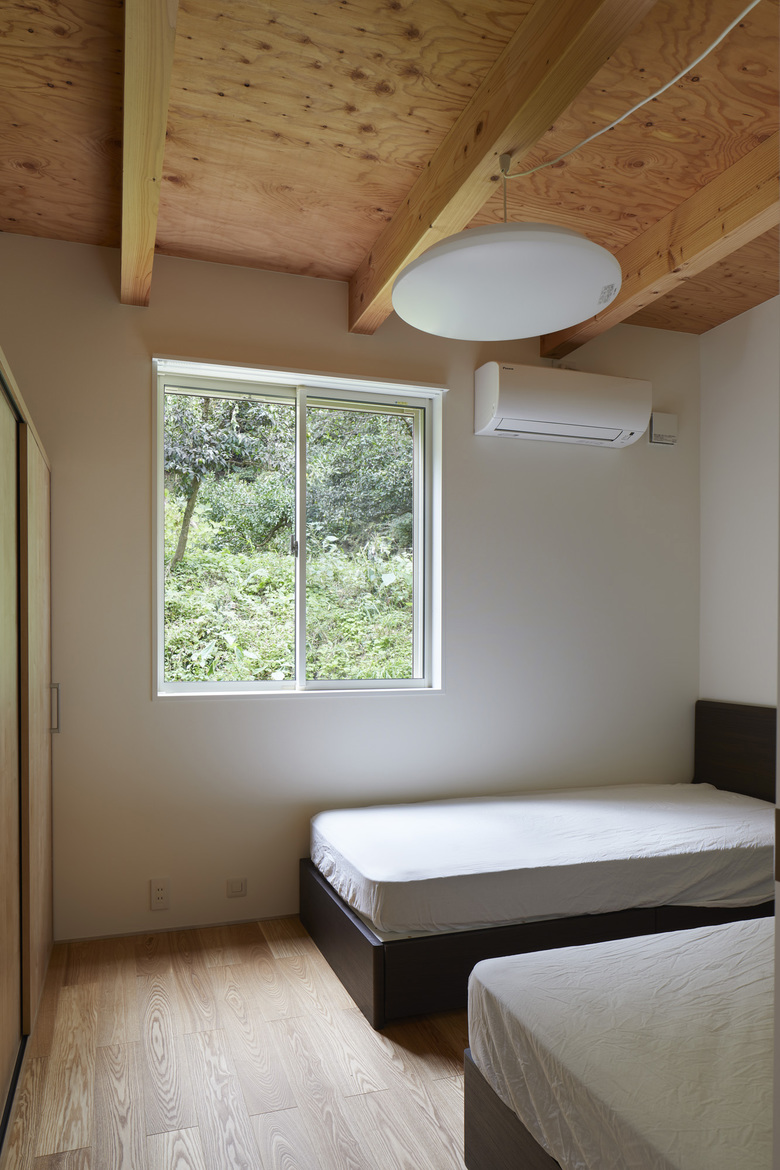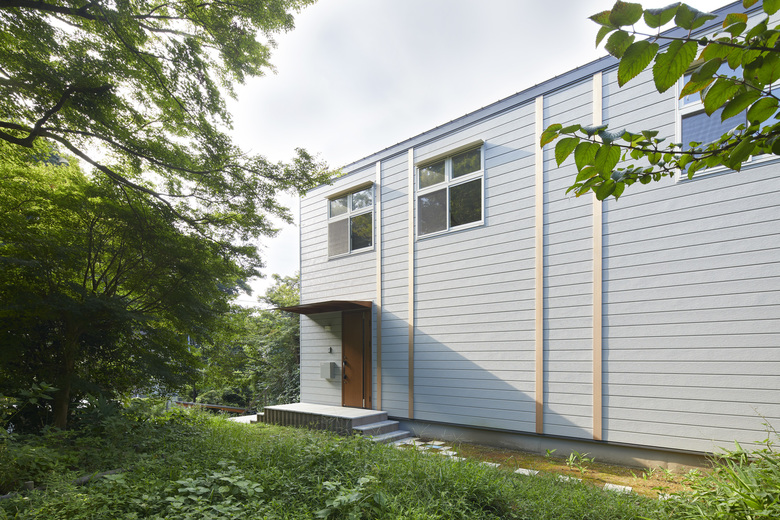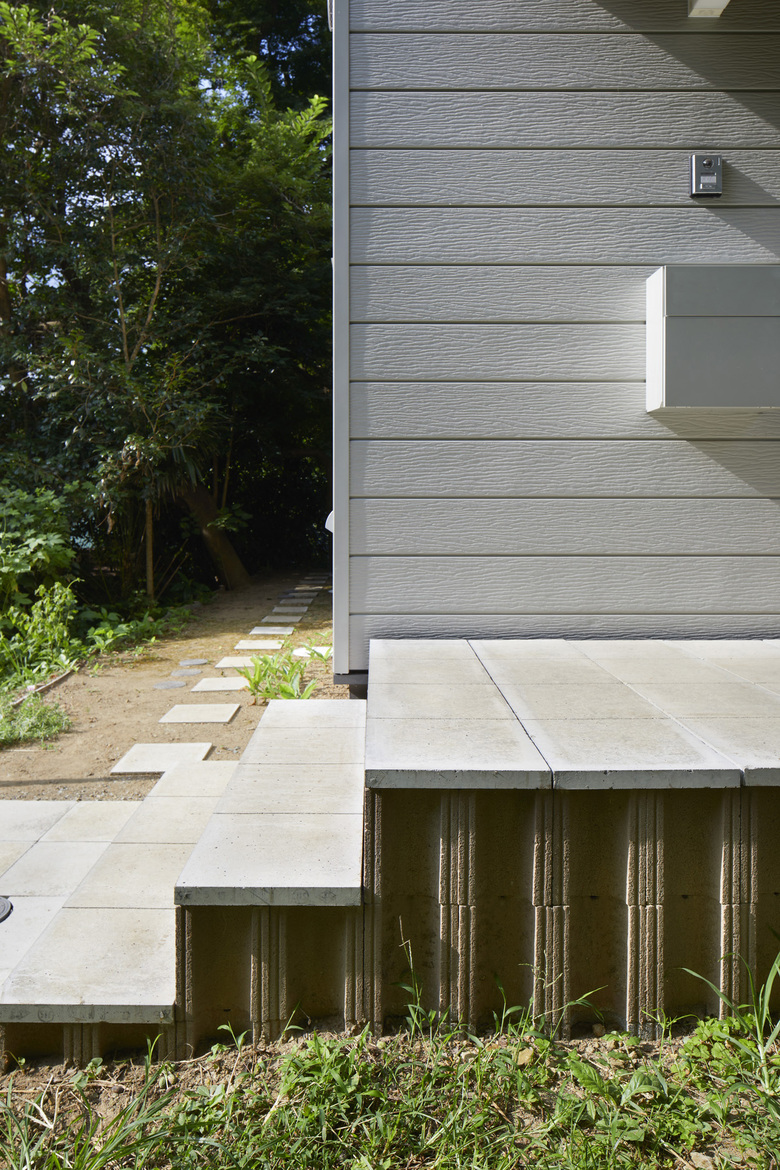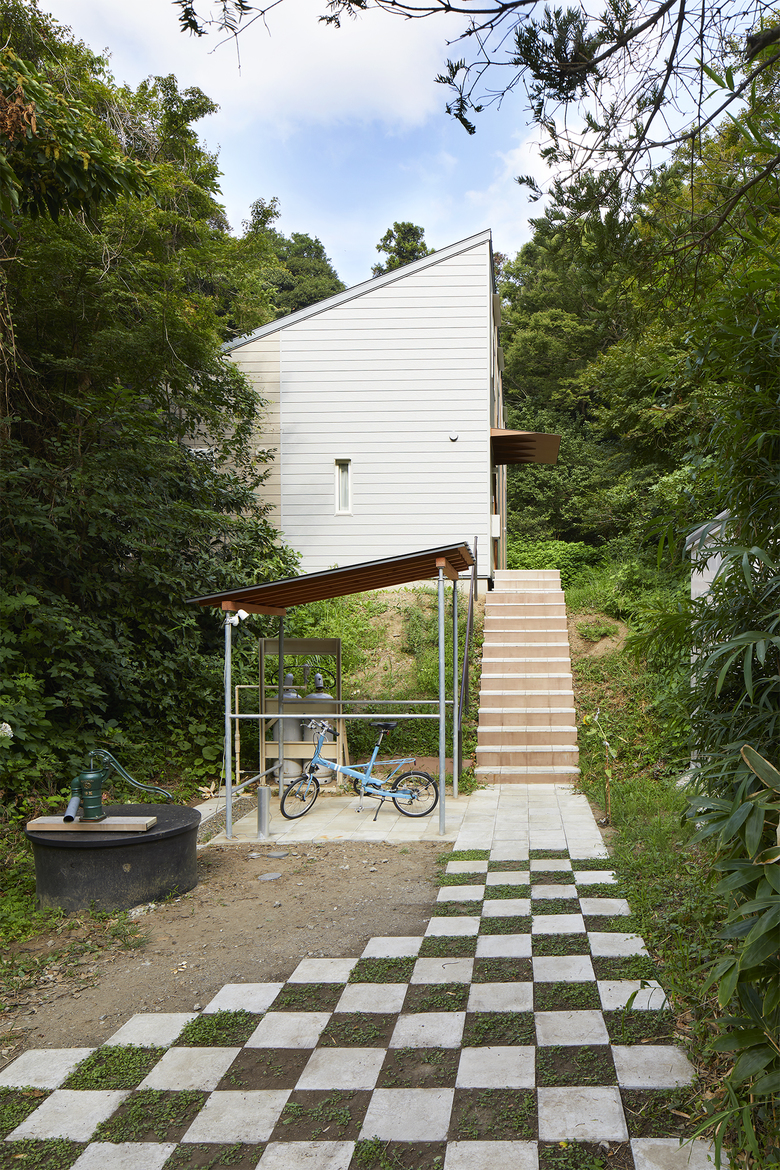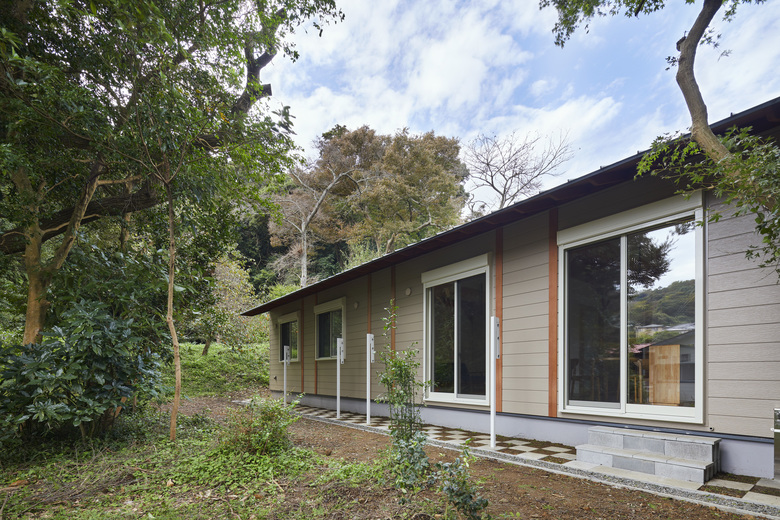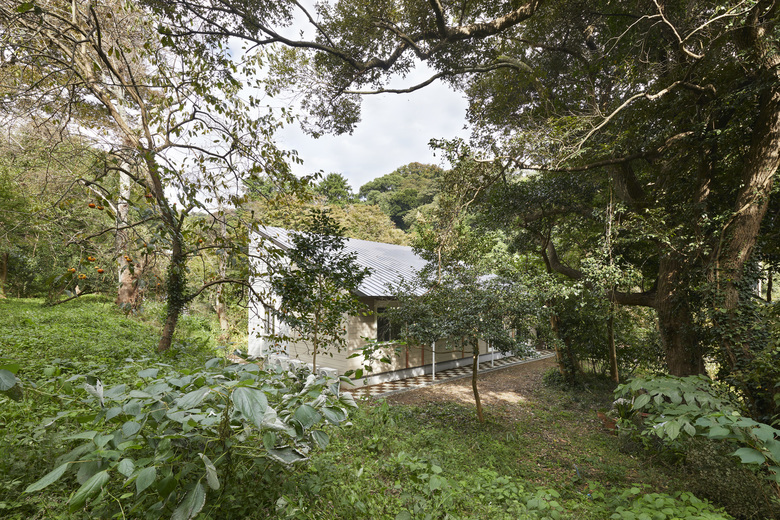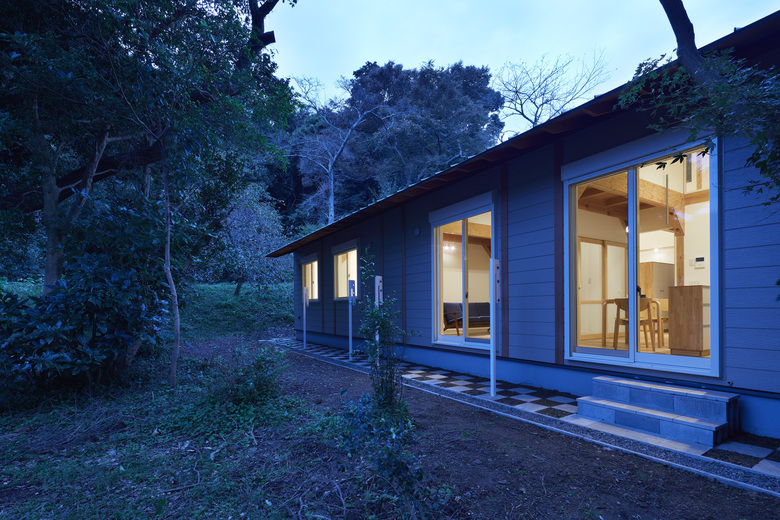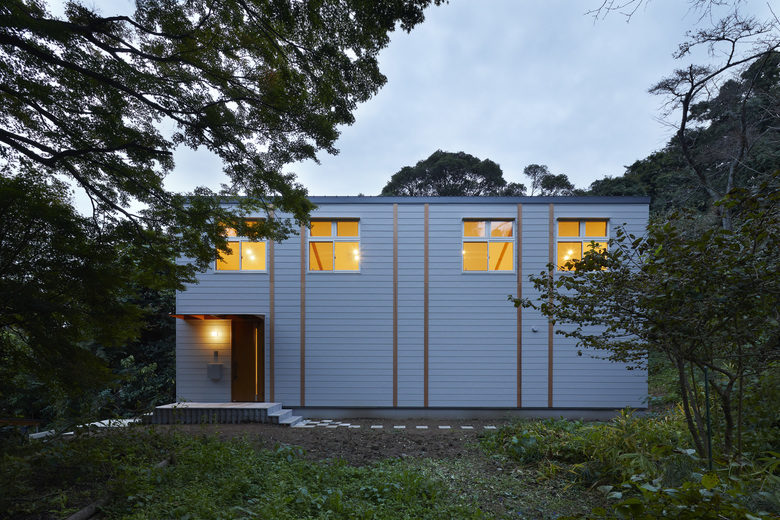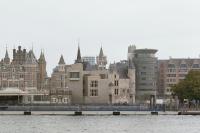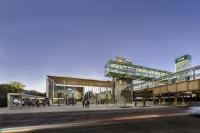Continuing House
Kanagawa, Japan
Childhood home of the wife of the client is a combination of Japanese and western style house built in the beginning of Showa era which stands on a hill about 15-minute’s walk from Kamakura station, historic town and tourist destination. It is located on slope of a hill looking down garden in east, verdant environment where wild squirrels run about in trees and flowers. Becoming decrepit 90 years after the construction, the house once faced difficulty in maintaining and surviving with imminent issues of inheritance.
Environment of a building could be transformed once the ownership of the property is transferred, and building and trees torn down. However if measures had not been taken, the cost of maintenance would have increased further for the client. After discussing several options, the client decided to donate their Japanese traditional style and western style house together with the land to Kamakura city as “Former Sakai Residence”, to be preserved as registered tangible cultural property. Furthermore it was decided to be utilized as the office of Kamakura Scenery Preservation Commission and be actively maintained.
In the process of donation, part of the lot remained with the client for them to build a new house to live after they have settled inheritance affairs and their children became independent. The design of this project began in this context.
From the remaining lot, Former Sakai Residence, cultural heritage and childhood home of the wife of the client, is located in the north, to which many strangers will be visiting. Therefore on the north of the lot is entrance approach of their new house making use of the well-kept garden of Former Sakai Residence as borrowed scenery. No fence was installed on the border of the lot, and windows are located in the height to mind the views from the visitors.
On the other hand, small private garden was designed on the south where terrace windows are facing to create continuity of interior and exterior. Shed roof is sloping north-south and extends eaves over terrace windows to make enough space for hanging out the laundry, drying Japanese plums to make pickles, and other house works, adding practicality to the continuity of interior and exterior.
We hear the word, final home, when building a house. However we supposed this house to be not a final home for empty nesters but a house continuing to child generation. This is a concept that the couple arrived at after facing the issue of maintaining wife’s natal home. The exterior form of building was designed simple rectangular to allocate bearing walls in the circumference and leave flexibility in the layout of interior space. Interior walls are Shinkabe (a type of plastered wall in which structural members are exposed) to show the structure and be directly changed. Statutorily, the building is one story, but bearing force of the structure is back-calculated for the building to be re-applied as two-story building if rigid floor is installed on the beams of high ceiling. As a result, haunch form structure was created, holding combining pillars, beams and diagonal braces by plywood, and made characteristic interior.
For purpose of maintenance sustainability, light and durable metal siding was selected for exterior wall material. When employing Shinkabe for interior, metal siding could not be employed for exterior side of pillars for legal reason, thus molding made by calcium silicate board and cedar with protective coating was employed. Molding part of the exterior wall will age by the time, and this transformation, we hoped, will bring its modern exterior with metal siding closer to the aged exterior of Former Sakai Residence to stand in harmony.
- Architects
- Akio Nakasa / Naf Architect & Design
- Location
- Kanagawa, Japan
- Year
- 2017
